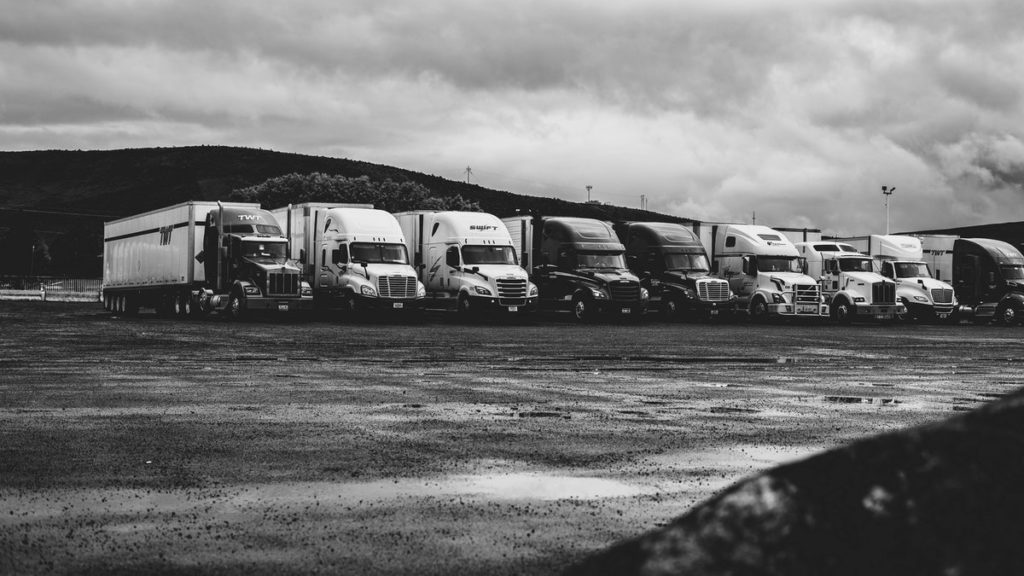Featured photo by Kevin Bidwell from Pexels
Operating a successful trucking business comes with a lot of challenges in any year. However, 2020 has particular challenges the trucking industry must face. From government freight regulations to environmental factors to rising fuel prices, 2020 has presented multiple struggles for the industry.
Such issues affect small- and large-scale businesses alike. Moreover, 2019’s changes to the industry’s logistics are overshadowed by a pandemic-stricken 2020.
RELATED CONTENT: MARKETING DURING CORONAVIRUS: 6 TIPS FOR OUTLASTING THE PANDEMIC
Both newcomers and old-timers in the trucking industry should check out Truck1 Europe, a company meeting 2020’s challenges head on. Truck1 Europe specializes in impressive light-duty and super heavy-duty vehicles, from trucks to trailers to campers and more. Getting ahead of 2020’s particularities is easier with such vehicles, which are available for rent if you can’t afford to buy.
Below is just a sampling of the challenges the trucking industry needs to gear up for in 2020.
Government Regulations for the Trucking Industry
Federal, state, and local authorities impose various regulations that trucking companies must adhere to. Such regulations include hours-of-service (HOS), electronic logging devices (ELD), minimum wage requirements, and even driver eligibility requirements.
The government dictates almost all operations of a trucking business. For this reason, trucking business owners should watch out for new regulations and changes to previous regulations. Such changes can create a lot of red tape and expense for drivers, whether they’re long-haul drivers or local drivers for material hauling services.
Fuel Costs Affecting the Trucking Industry
The biggest challenge for the trucking industry is to keep up with fluctuating fuel prices. For this reason, business owners work hard to improve fuel efficiency. Moreover, trucking businesses are affected by increased vehicle costs and higher shipping costs for certain time-sensitive products.
Without strategic planning regarding fuel prices, carriers either have to increase their prices or incur losses.
Cash Flow
For smooth operations, carriers must maintain steady cash flow. However, the waiting time for a carrier’s payment can slow both growth and cash flow. Luckily, with freight factoring, carriers can eliminate the lag between payments. Freight factoring allows carriers to grow capital reserves. They can use these reserves for hiring drivers and expanding into new areas.
Driver Shortage and Retention
New laws and rules regarding driver recruitment expose the trucking industry to the ongoing threat of losing drivers. Also, the thorough and rigid hiring process demands increased investment in hiring methods. Consequently, with the expected shortage of truck drivers, you must plan a strategy to retain your truck drivers.

Photo by Phenyo Deluxe from Pexels
Digital Transformations
More technology means greater digital transformation. The trucking industry has benefited by digitizing its operations. Carriers use digital methods of real-time monitoring, location tracking, logging of drivers’ hours of service, and other processes.
Consider reshaping your business strategies to suit the digital age. Overcoming this challenge will give you a competitive edge in the industry. Conversely, failing to do so will result in fewer business opportunities and less revenue.
Customer Expectations
However, digitization of the trucking industry is important for more than just generating more revenue. It is also important for meeting customer expectations. Thanks to technology, customers are now information-driven. Thus, they expect transport companies to keep them updated throughout the shipping and delivery process.
The trucking industry must keep up with technology trends to give their customers a better experience and build consumer trust.
Environmental Concerns
Among the largest contributors to air pollution are the various modes of transporting goods, including trucks. Consequently, the trucking industry is partly responsible for climate change and global warming. Trucking is not an environmentally friendly industry because it relies on diesel and gasoline for its operations.
The trucking industry won’t be able to change the way it operates overnight. But as a trucking business owner, you can choose greener and more sustainable alternatives. You can do this by investing in and utilizing green transport technologies.
Driver Health and Safety
The most important factor for any trucking business is its drivers. Truck drivers can be on duty for a maximum of 11 hours a day because their health and safety are at risk otherwise. Moreover trucking business owners should invest in health insurance. They should also encourage strategies to improve driver fitness.
RELATED CONTENT: BUSINESS INSURANCE COVERAGE: NOW IS A CRITICAL TIME
Additionally, safety sensor technology helps reduce accidents. It is well worth the business owner’s investment to keep their drivers safe and healthy.
Overcoming the Trucking Industry’s Challenges
The trucking industry provides an essential service. The industry can overcome its current challenges with perseverance and determination.


